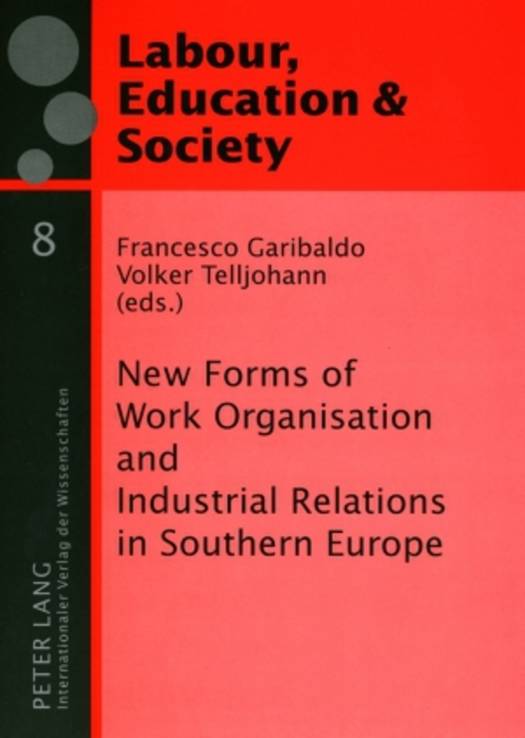
- Afhalen na 1 uur in een winkel met voorraad
- Gratis thuislevering in België vanaf € 30
- Ruim aanbod met 7 miljoen producten
- Afhalen na 1 uur in een winkel met voorraad
- Gratis thuislevering in België vanaf € 30
- Ruim aanbod met 7 miljoen producten
Zoeken
New Forms of Work Organisation and Industrial Relations in Southern Europe
€ 109,95
+ 219 punten
Omschrijving
The aim of interconnecting work organisation, innovation and employment provides a defining approach of the European Union to competitiveness. Although there is evidence of the social and economic benefits deriving from processes of organisational innovation and participation there seems to be a lack of dissemination of new forms of work organisation in Southern Europe. Internationally well-known scholars from France, Spain, Portugal, Greece and Italy try to explain what are the specific obstacles with regard to a broader dissemination of new forms of work organisation in these countries. By doing so they also try to respond to the following more specific questions: What is the role of public policies with regard to the dissemination of new forms of work organisation? How can industrial relations foster processes of organisational innovation? What is the relationship between restructuring processes and new forms of work organisation?
Specificaties
Betrokkenen
- Uitgeverij:
Inhoud
- Aantal bladzijden:
- 350
- Taal:
- Engels
- Reeks:
- Reeksnummer:
- nr. 8
Eigenschappen
- Productcode (EAN):
- 9783631536056
- Verschijningsdatum:
- 3/10/2007
- Uitvoering:
- Paperback
- Formaat:
- Trade paperback (VS)
- Afmetingen:
- 148 mm x 210 mm
- Gewicht:
- 369 g

Alleen bij Standaard Boekhandel
+ 219 punten op je klantenkaart van Standaard Boekhandel
Beoordelingen
We publiceren alleen reviews die voldoen aan de voorwaarden voor reviews. Bekijk onze voorwaarden voor reviews.










